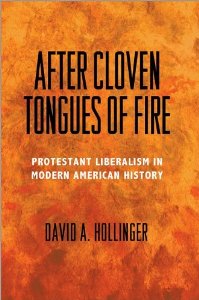More Books I'm Excited About
Mark Edwards
Just came across this forthcoming must-read, must-own yesterday: David Hollinger is republishing his recent OAH Presidential address on ecumenical Protestants, along with a number of other essays featuring new introductions, a new preface, and a can't miss new epilogue. After Cloven Tongues of Fire: Protestant Liberalism in Modern American History (Princeton April 2013) is already garnering significant praise from E. J. Dionne and many others.
Finally, I'd like to recommend an edited collection by Andrew Bacevich, The Short American Century: A Postmortem (Harvard, 2012). Besides boasting an all-star line-up, it also features a new essay by Christian Critics (Cornell 2000) author Eugene McCarraher on the "eschatology of corporate business." Good stuff.
Just came across this forthcoming must-read, must-own yesterday: David Hollinger is republishing his recent OAH Presidential address on ecumenical Protestants, along with a number of other essays featuring new introductions, a new preface, and a can't miss new epilogue. After Cloven Tongues of Fire: Protestant Liberalism in Modern American History (Princeton April 2013) is already garnering significant praise from E. J. Dionne and many others.
Finally, I'd like to recommend an edited collection by Andrew Bacevich, The Short American Century: A Postmortem (Harvard, 2012). Besides boasting an all-star line-up, it also features a new essay by Christian Critics (Cornell 2000) author Eugene McCarraher on the "eschatology of corporate business." Good stuff.



Comments